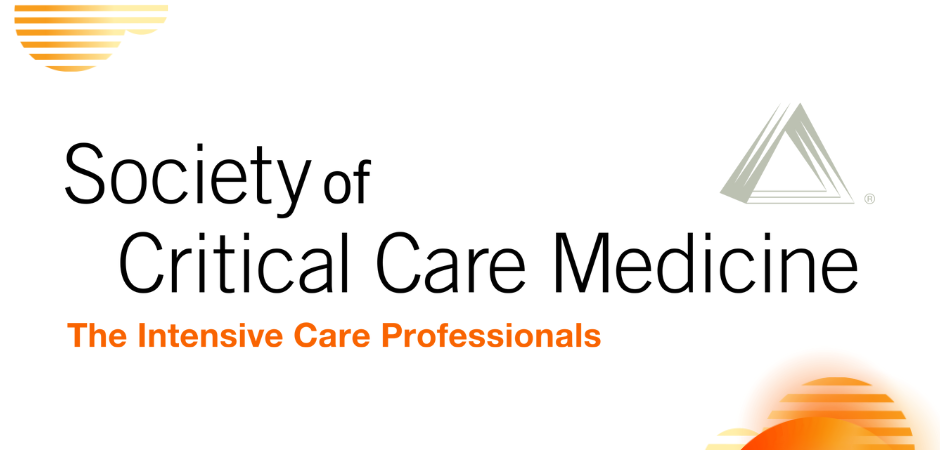
Ask a group of dedicated medical professionals what led them to their careers and many will have an inspiring story to tell — a seminal moment that motivated their choices and played a key role in their destinies.
For Kwame A. Akuamoah-Boateng, ACNP, MSN, an SCCM member and clinical professor at the University of Virginia School of Nursing, that moment came when he was a very young child growing up in his native Ghana.
“My twin sister was very sick,” Mr. Akuamoah-Boateng recalled. “She wound up developing a very high fever, and when she was taken to the hospital, the doctors failed to realize how ill she really was. Instead of receiving critical care, she was given paracetamol [acetaminophen] to help lower her fever. After several days of that therapy, she developed septic shock and ultimately passed away.” That was a moment that would have a very big impact on Mr. Akuamoah-Boateng later, when he was deciding on a career path.
“I went into healthcare with a mindset of making a difference,” he said. “Now, that may sound very vague to most of us. But to me, making a difference means touching the lives of those who can be saved but whose healthcare options are limited by poor infrastructure, lack of resources, and lack of access to care. These are people who end up with grave illnesses and high mortality rates simply because the healthcare they need is not available. For me, focusing on acute care and preventable deaths was very important, and it was a driving factor as my career was taking shape.”
Fundamental Critical Care Support Courses in Rwanda
Giving back is another major driver for Mr. Akuamoah-Boateng, and one that truly came to fruition a little over a year ago.
“I was teaching in the acute care nurse practitioner program here when I was introduced to Dr. Rhuato Paulin Banguti, a visiting physician from Rwanda,” he remembers. “During the course of our conversations, a friendship eventually developed, and we realized a shared interest in the challenges facing many communities in African countries—namely, the shortages and challenges that exist in critical care medicine, along with the high mortality rates in these countries.
"In Rwanda, the mortality rate is above 60%, and the majority of the doctors there had no structured clinical care training. Thinking about all those challenges led me to the SCCM’s Fundamental Critical Care Support (FCCS) course. My hope was if we could match education and skills stations to the student's resources and needs, it could have a major impact on the care they provide and the people they treat—and ultimately save lives,” he said.
Working with the SCCM Carolinas/Virginias Chapter, Mr. Akuamoah-Boateng organized a mission to Kigali, Rwanda, where he and 10 other faculty members led a two-day FCCS course for 38 students, including nurses, physicians, residents, emergency medicine specialists, and other healthcare providers.
This FCCS course was made possible in part by financial support from SCCM donors. Help make more Fundamentals courses possible by donating today. |
“In Rwanda, there are four adult intensive care units (ICUs), and most of the healthcare practitioners charged with managing and caring for ICU patients have no specialized training,” Mr. Akuamoah-Boateng notes. “The FCCS mission offered a vital resource for improving both quality of care and patient outcomes,” he said. During the two-day course, the faculty covered topics such as how to identify critically ill patients, how to perform basic ventilator management for both adult and pediatric patients, how to care for patients with shock, trauma and sepsis, and other essential skills.
“The SCCM’s FCCS course is truly a fundamental course that’s appropriate for all clinicians, in my opinion,” Mr. Akuamoah-Boateng says. “One of the key factors of the FCCS program is that the contents are practical. After many years of teaching the course here in the United States, I recognize its value in critical care training. The primary limitation lies in the limited resources of the country where the course is being taught. Before we began the training in Rwanda, we spent some time in the hospitals there, which helped us to evaluate and modify our teaching style and content to suit the resources they had available.”
One of Mr. Akuamoah-Boateng’s mission teammates, Cindy Zerfloss, an acute care nurse practitioner in Lynchburg, agrees.
“The information contained in the FCCS course is excellent,” Ms. Zerfloss notes. “But Rwanda does not have the equipment to handle much of the specialized monitoring that’s recommended. Without losing the integrity of the FCCS course, I discussed what monitoring could be done but really focused on the physical examination to monitor for neurological changes within a patient that would prompt one to be concerned about rising intracranial pressure.
“Often, the greatest learning occurs outside the classroom,” she notes. “I had the opportunity to discuss stroke intervention and treatment—barriers and successes—at length following the course with medical and nursing staff, which was a really important opportunity.”
Ms. Zerfloss intends to return to Rwanda with Mr. Akuamoah-Boateng and other team members to teach another donor-funded FCCS course later this year. That endevour has already enrolled twice the number of participants as last year’s course, Mr. Akuamoah-Boateng notes.
“The ultimate goal of the trip was to use FCCS as a means to improve critical care knowledge acquisition from a fundamental standpoint and improve patient morbidity and mortality,” Mr. Akuamoah-Boateng says. “We hope this trip is just the start to initiatives aimed at providing the FCCS course across East Africa.”